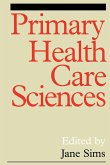Health sciences require up-to-date and reliable information for decision-making related to the provision of health services and care. For this it is necessary that health professionals carry out relevant and correct research or appraise the available clinical research. Among the different research designs, cohort studies were developed over a century ago as a powerful methodological tool to determine risk factors for different events or health outcomes. Despite their potential biases and limitations, which are inherent in any epidemiological study, the findings derived from cohort studies provide a high level of evidence for health decision-making. In addition, for many questions derived from health care, and due to the ethical concern or logistic impossibility of conducting a clinical trial, the cohort study can be the best option for clinical research. This book highlights the main characteristics of cohort studies: comparative advantages and disadvantages and their main strengths and limitations; and through examples shows the contribution of findings from cohort studies to be used in the health field.
Hinweis: Dieser Artikel kann nur an eine deutsche Lieferadresse ausgeliefert werden.
Hinweis: Dieser Artikel kann nur an eine deutsche Lieferadresse ausgeliefert werden.








